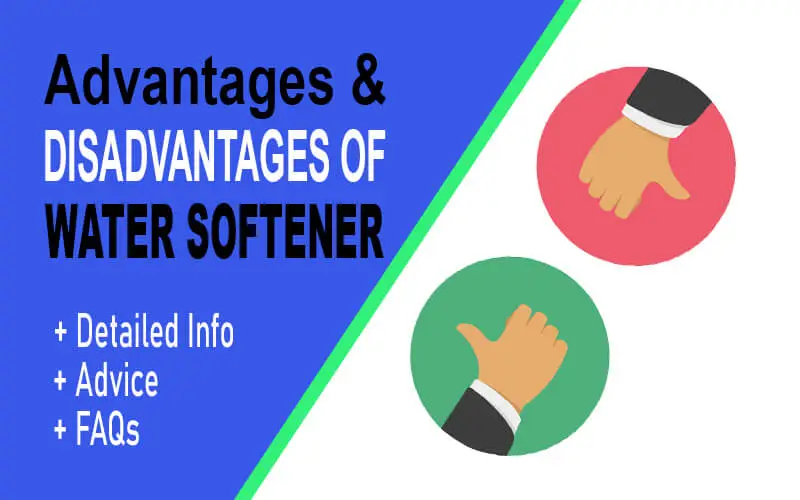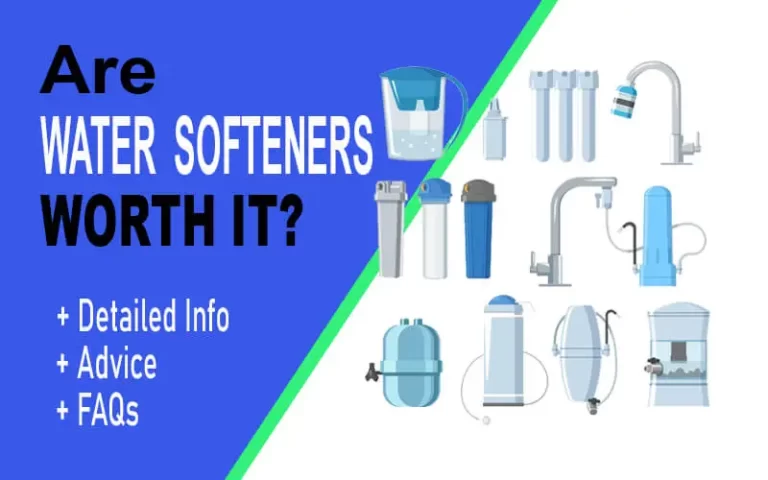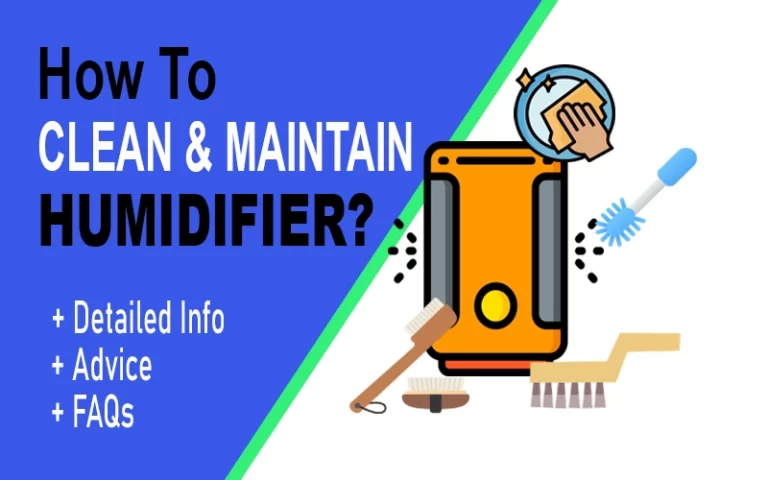Advantages and Disadvantages of Water Softener 2023
Do you know? there are some disadvantages of water softener, so don’t focus only on the advantages of water softener. If you’re like most people, you take the water from your tap for granted. However, hard water can be hard on your appliances and your skin if you live in a hard water area.
Hard water is water with a very high mineral content, with especially high levels of calcium and magnesium, which you can detect from a continuously low water pressure in your home or ideally a water test. Hard water raises energy consumption in your home by reducing machine efficiency, thus spiking your energy bill, along with degrading your living standards to unhealthy.
That’s where a water softener comes in. A water softener removes hardness and other impurities from water, making it easier to use and more comfortable to drink.
Advantages of Water Softener: [+Pros]
Water softeners have a number of advantages that make them a valuable addition to any home.
It makes water safe for consumption and household chores:
Water softeners guarantee a protected climate for drinking water and household chores. Hard water can contain high levels of minerals, including calcium and magnesium, which can be damaging to appliances and plumbing fixtures. Softening water can also make it easier to clean dishes and laundry.
Additionally, soft water can improve the quality of soap and shampoo because it allows the cleaning agents to work more effectively. Soft water can also make it easier to rinse off after bathing because less soap residue will be left on the skin.
It removes the build-up of scales:
Water softeners have many benefits, chief among them being the removal of scale build-up. Scale is a significant problem in many parts of the world, particularly in areas with hard water. There are a great deal of minerals in hard water, including calcium and magnesium.
Various issues can be brought about by these minerals, remembering scaling for water-utilizing machines. Plumbing systems can be damaged by scale build up and appliances can become less efficient. Water softeners work by removing these minerals from the water, preventing scale build up and the problems that come with it.
It provides a cleaner wash:
There are many benefits to using a water softener, chief among them being a cleaner wash. When water is soft, it contains fewer mineral deposits and is less likely to leave behind water spots. In addition, laundry washed in soft water will be brighter and softer to the touch.
Soft water is also less likely to cause skin irritation, as it will not strip away the natural oils from the skin. In addition, using a water softener can prevent mineral deposits from accumulating on your plumbing fixtures and appliances.
It eliminates the strain on the plumbing system:
Water softeners have many benefits, chief among them being the elimination of strain on plumbing systems. Hard water, which is water that contains high levels of dissolved minerals, can wreak havoc on pipes and fixtures, causing them to clog and break down over time. A water softener works by exchanging the hard water ions for softer ones, thus protecting your plumbing and extending its lifespan.
In addition to protecting your plumbing, water softeners can also improve your home’s overall water quality. Hard water can cause a number of problems, including making it difficult to get soap to lather, leaving spots on dishes and glassware, and making clothing feel stiff and scratchy. By removing the hard water ions, a water softener will leave you with clean water.
Disadvantages of Water Softener: [+Cons]
There are several potential drawbacks to water softeners that should be considered before they are installed.
They are expensive to install and maintain:
Water softeners are often considered to be an investment, as they can be costly to install and maintain.
-They can be expensive to buy or install: An essential water softener can cost between $1,000 and $5,000, and more advanced models can cost upwards of $10,000.
-They can require regular maintenance: Water softeners require regular filter changes and replacement of the resin tank. This can cost between $100 and $500 per year on average.
The alternatives are also expensive:
Water softeners are not without their drawbacks. The most significant one is cost. While the initial investment for a water softener may not be too significant, the long-term costs can be pretty high. There is likewise an extensive expense related with electric water softeners, (for example, capacitive deionization, electrically prompted precipitation, layout helped crystallization, and electromagnetic treatment).
Additionally, water softeners require a fair amount of maintenance and upkeep. The salt used in the softening process needs to be regularly replaced, and the system itself needs to be regularly cleaned and serviced.
The water supply is the problem:
One of the primary cons of water softeners is that they require a reliable and consistent water supply in order to function correctly. Without a sufficient water supply, water softeners can become clogged, damaged, or even wholly dysfunctional.
Additionally, water softeners typically require a relatively high level of maintenance in order to keep them running correctly, which can be both time-consuming and expensive. Finally, some homeowners may simply prefer the taste and feel of hard water, which the use of a water softener can negate.
Environmental Harm:
There have been a number of environmental effects associated with the use of water softeners. Brine releases into the environment are one of the most significant. Softeners remove hardness from water by using brine, a solution that contains a high amount of salt.
When water softeners release brine into the environment, it can damage plant life and contaminate groundwater. In addition, water softeners can also increase the levels of sodium in water, which can be harmful to wildlife. So consider all the benefits and drawbacks of softeners before making your choice in market.
Messing with dietary mineral requirements:
Each person has a specific requirement for dietary minerals, so it’s essential to consult with a health professional before making any changes to your diet. Some people may find that they need more minerals than others, especially if you’re using a water softener. By altering how you use your water softener, you could be messing with your mineral requirements, which could have serious consequences.
One of the biggest problems with using water softeners is that they remove so much calcium from the water supply. Mineral deficiencies can cause osteoporosis and other problems in older adults. In addition, softened water doesn’t hold onto dissolved minerals very well, which means that they can quickly become depleted in areas where hard water is already scarce.
Conclusion:
Using a water softener has its pros and cons. There’re advantages of water softener but don’t ignore the disadvantages of water softener too.
Some people feel that it is a necessary step in maintaining a healthy household, while others argue that the installation and maintenance costs are high. It is essential to consider all the options before making a decision, as many different types of water softeners are available.


![9 Sure Fire Benefits Of A Backup Generators [Savvy|Smart] 2023](https://prohouseideas.com/wp-content/uploads/2022/11/benefits-of-a-backup-generator-768x480.webp)

![Diffuser vs Humidifier vs Vaporizer: [+Differences] 2023](https://prohouseideas.com/wp-content/uploads/2023/01/diffuser-vs-humidifier-vs-vaporizer-768x480.webp)

![Find Out Now! Hard Water Vs Soft Water [Differences] 2023](https://prohouseideas.com/wp-content/uploads/2022/08/hard-water-VS-soft-water-768x480.webp)

It really helped when you elaborated on water softener and how it makes our water safe for us to drink. We spend a lot of money on bottled water at home since we usually drink a lot of water and use it for cooking, so my wife and I think it’d be smart to invest in a system that’ll clean our water. We appreciate your insight on water softeners and how they remove all of our water’s minerals.